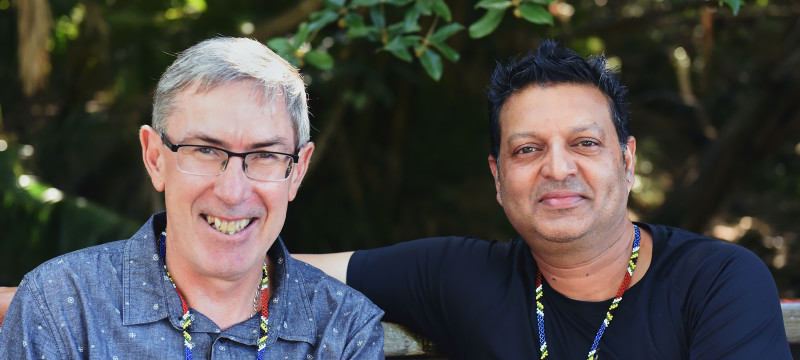Despite stiff opposition from a coalition of civil society operatives, the Green Climate Fund (GCF) has resolved to channel its money through HSBC Holdings Plc and Crédit Agricole Corporate & Investment Bank. This formed part of decisions reached as the GCF Board’s twelfth meeting (B.12) came to a close on Friday in Songdo, South Korea.
The group had on Monday alleged that both banks were funding the coal industry. “The GCF Board must reject HSBC and Crédit Agricole. Creating new business for big banks with large fossil fuel portfolios and poor records on human rights and financial scandal would undermine the very purpose of the Fund,” said Karen Orenstein of Friends of the Earth U.S.

“The accreditation of these banking giants would jeopardise the reputation of the GCF and expose it to unnecessarily high fiduciary risk. HSBC and Crédit Agricole provided US$7 billion and US$9.5 billion, respectively, to the coal industry between 2009 and 2014, and their coal financing does not show a clear downward trend. Moreover, HSBC is deeply embroiled in massive financial scandal,” said Yann Louvel of BankTrack.
But the GCF has given the financial institutions the nod, making them part of the 13 newly approved entities, which represent a diverse range of public, private, small, and large organisations. This includes four national public entities, one regional public entity applying under direct access, two private sector entities, and six international public entities.
A total of 33 entities are now authorised to partner with GCF and implement its projects and programmes.
Besides HSBC and Crédit Agricole, the other new entities are: Agency for Agricultural Development of Morocco (ADA), Ministry of Finance and Economic Cooperation of the Federal Republic of Ethiopia (MOFEC), National Environment Management Authority of Kenya (NEMA), Development Bank of Southern Africa (DBSA), African Development Bank (AfDB) and European Investment Bank (EIB).
Others include: International Finance Corporation (IFC), Unidad Para el Cambio Rural from Argentina (Unit for Rural Change – UCAR), International Union for Conservation of Nature (IUCN), World Food Programme (WFP) and World Meteorological Organisation (WMO).
Apart from accrediting new entities, B.12 also adopted the Fund’s first Strategic Plan, as well as the 2016 Work Plan. The Board says the policy decisions reached are designed to strengthen its partnerships and grow its project pipeline in the year.
“The Board has reached agreement this week on key decisions that help us deliver against our target of approving US$ 2.5 billion in 2016,” said Ewen McDonald, Board Co-Chair from Australia.
“We have adopted the strategies and policies we urgently needed to evaluate existing funding proposals, which currently amount to US$ 1.5 billion, and further develop a pipeline of innovative projects,” said Zaheer Fakir, Co-Chair from South Africa. “The spirit of Board unity endured this week, and we will continue in this manner throughout the remaining three meetings this year,” he added.
GCF’s current pipeline includes 22 private and public projects with a total value of over US$ 5 billion. One of the key outcomes from B.12 is the Board’s adoption of the Fund’s first Strategic Plan, which sets out GCF’s vision, operational priorities, and an action plan to be implemented by 2018. The Strategic Plan strengthens the Fund’s ability to programme its resources at scale, in an ambitious and country-driven manner.
“This is a major achievement and evidence of a united Board that is working hard to find a common middle ground so that we can continue moving forward,” said Mr. Fakir.
During the meeting, the United States informed the Board that it completed its contribution arrangements, formalising its pledge of US$ billion to the GCF. The United States also completed arrangements to transfer US$ 500 million to the GCF as its first installment on the pledge.
A number of procedural decisions were also taken at B.12. The Secretariat’s staffing profile will receive a boost from its current 56 permanent staff to 100 by the end of 2016 and 140 by the end of 2017.
The Board approved US$ 1.5 million for Rwanda as the first grant under the Fund’s Project Preparation Facility (PPF), an innovative instrument to support AEs from developing countries to generate high-quality projects.
The Board also took steps to expedite the disbursement of US$ 11.2 million under grant agreements already signed with 13 countries under the Fund’s readiness and preparatory support programme.
Promoting transparency, an information disclosure policy was adopted, which includes providing live web streaming of future GCF Board meetings, with a review of its utility in 2017.
Regular GCF Regional Workshops were identified as important outreach and advocacy activities of the Fund to support developing countries in accomplishing their readiness and country ownership objectives.
The Board also launched the recruitment process for the new Executive Director by concluding terms of reference for the position and recruitment process.
GCF’s inaugural Executive Director, Héla Cheikhrouhou, had informed the Board that she would not seek a renewal of her three-year term, which ends in September this year. The GCF Board acknowledged the critical role Ms. Cheikhrouhou has played in establishing the Fund and in making it operational.
The 12th Board meeting was attended by more than 200 participants, including alternate Board members and advisers as well as 130 representatives from observer organisations.
The 13th meeting of the Board (B.13) will be held from 28 to 30 June 2016 at GCF Headquarters in Songdo. B.14 is scheduled to take place in October in Quito, Republic of Ecuador, followed by B.15 in December in Apia, Independent State of Samoa.
“I’m thrilled that there will be a Board meeting in the Pacific this year,” said Mr. McDonald. “This is an opportunity to present first-hand the challenges that Pacific island countries face due to climate change.”
